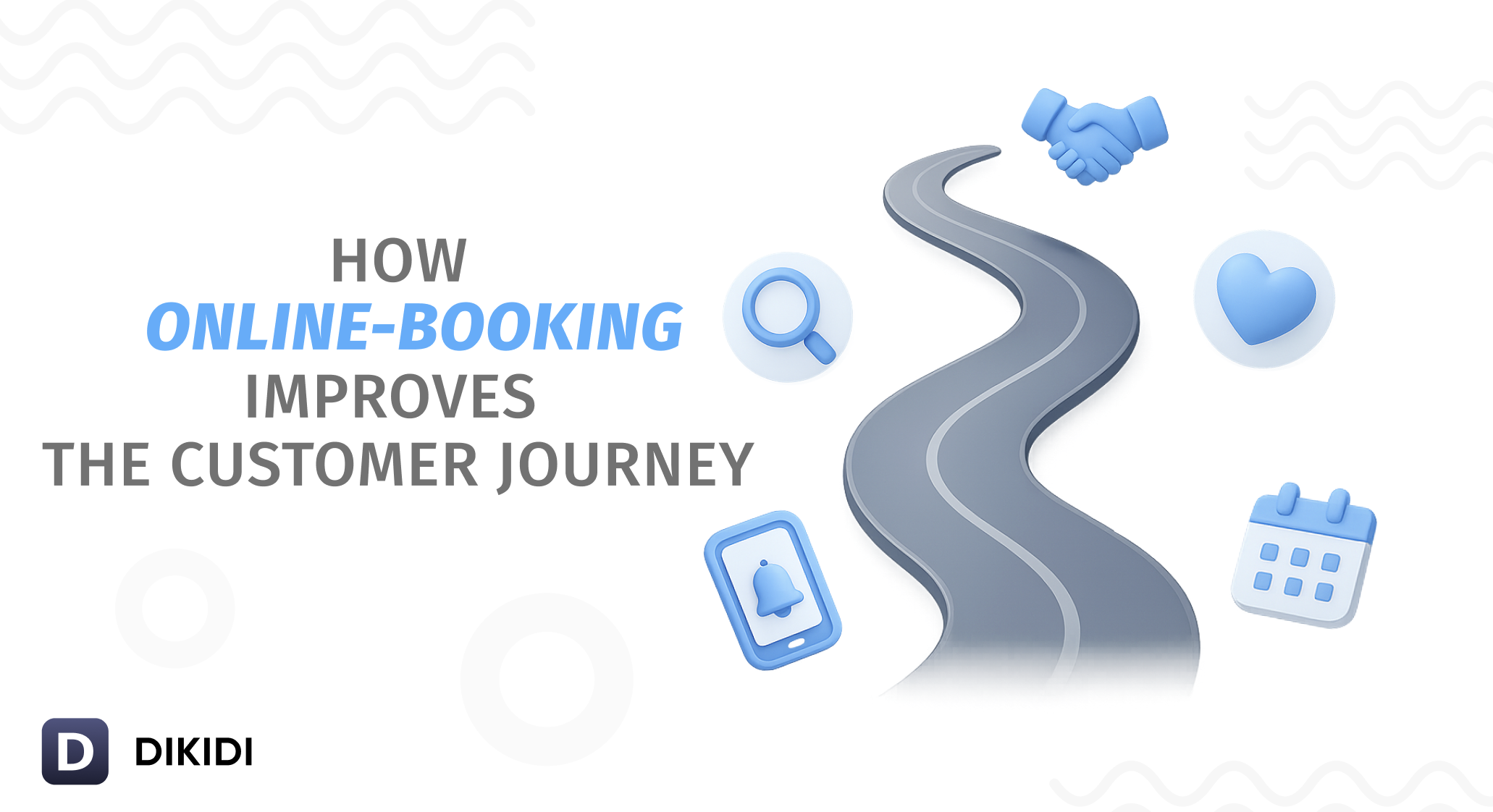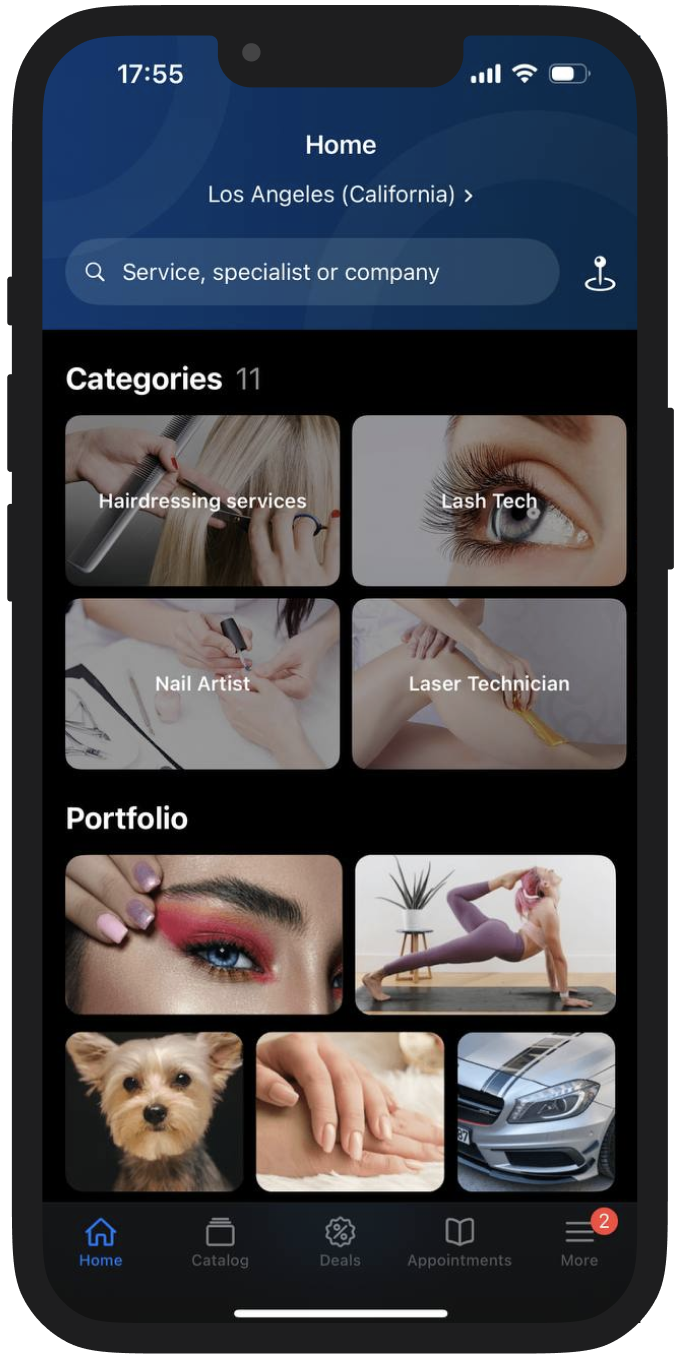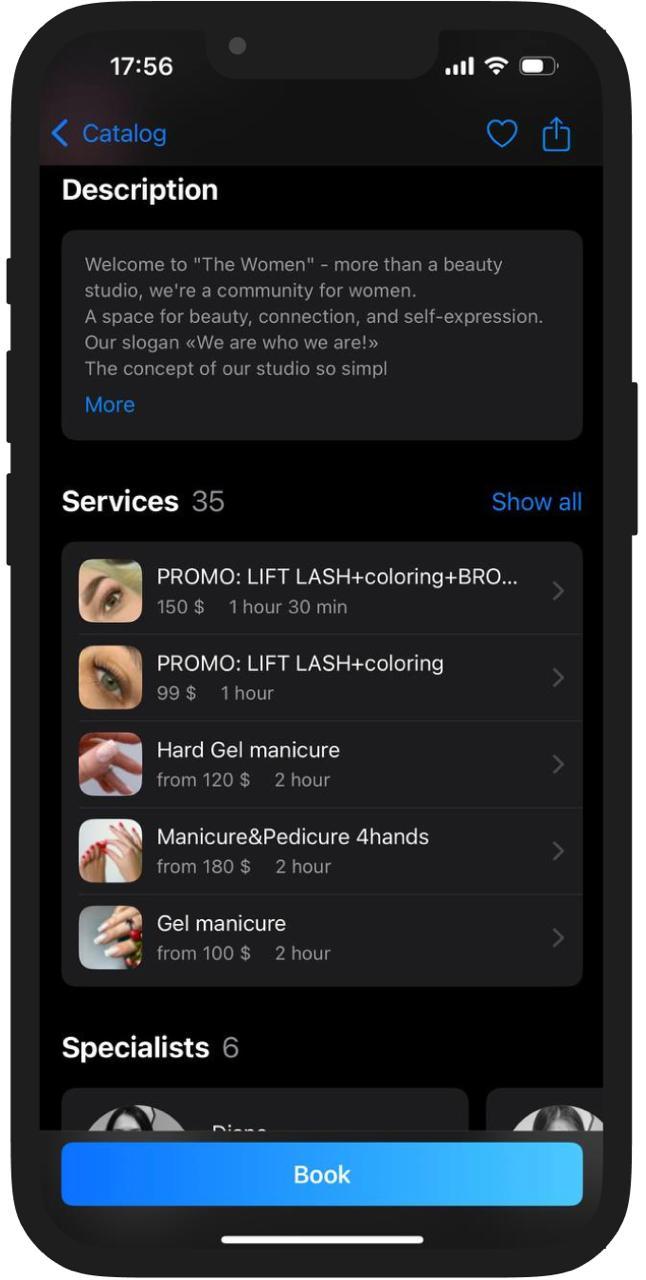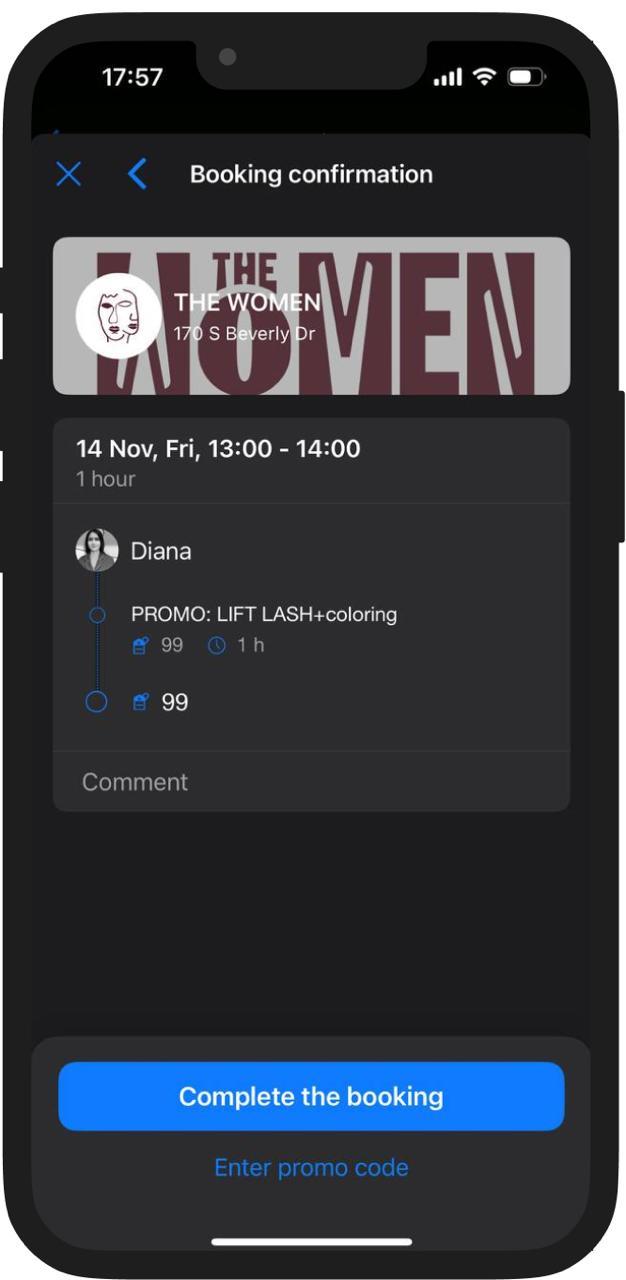How Online Booking Improves the Customer Journey — and Why It Matters for Your Business
Last modified:

Today, customers choose not just a product or service — they choose convenience. Even with great quality and fair prices, a complicated path to purchase or appointment can cause them to lose interest — and you lose profit.
That’s why it’s important to understand the customer journey — the entire process a person goes through: from first interest to the visit and their return.
What the Customer Journey Is and Why You Should Analyze It
The customer journey shows how a person interacts with your business at every stage. If even one step is inconvenient, confusing, or requires extra effort — the customer goes to a competitor.
To prevent this, you need to make the journey as simple and pleasant as possible:
➰ Reduce the number of steps between interest and purchase
➰ Eliminate unnecessary calls and waiting
➰ Make the booking process fast and intuitive
And one of the most effective tools for this is online booking.
Why Businesses Often Underrate Online Booking
Owners often see it as a “technical add-on”. But for customers, it’s a deciding factor: will they book in one minute — or lose interest after the third phone call?
Online booking directly affects:
🔹 Loyalty — if it’s convenient, customers come back
🔹 Decision speed — fewer doubts and distractions
🔹 Brand perception — a modern, customer-oriented business earns trust
Online Booking Through the Customer’s Eyes
1️⃣ First Interaction
A customer searches for a service on social media, search engines, maps, or DIKIDI Online. If they want to book, the business may offer chats, calls, or online booking. And 67% of customers prefer booking online — fast, no waiting, and available 24/7.

2️⃣ Interface & Navigation
Customers trust businesses with an online-booking flow that is not only convenient but also visually pleasant. A branded page where they can choose a specialist, service, date, and time on their own builds a positive impression and increases loyalty. This approach impacts revenue: a well-designed online-booking experience increases income by an average of 27%.

3️⃣ Booking the Appointment
The customer selects service parameters, confirms the choice, and fills in their details. Self-booking reduces no-shows by 17%. Automation also prevents revenue loss caused by errors, overlaps, or misunderstandings.

4️⃣ Appointment Confirmation
After choosing a time, the customer confirms the appointment. The system instantly records it and notifies the business — preventing double bookings.
5️⃣ Visit & Rebooking
After the visit, the customer receives reminders, a request for feedback, and an invitation to book again. This communication increases repeat visits.
What Your Business Gains
✅ Availability — customers can book 24/7
✅ Convenience — a shorter, clearer journey increases conversion
✅ Control — automation frees up administrator time
✅ Omnichannel experience — booking from social media, website, maps, app, or DIKIDI Online — always equally easy
Why This Pays Off
Missed appointments, admin mistakes, and schedule conflicts directly reduce revenue. Automation eliminates these losses and gives your business stability and predictability.
If a customer can book in one minute — with no calls, no waiting, and no extra steps — they already had a positive interaction with your brand.
Online booking makes the customer journey simple, transparent, and predictable — your key to growth, stability, and loyalty. 🔑
Enable online booking in DIKIDI: Settings → Online Booking ✨
📚 Also read:
Online Booking Methods
5 Situations When Online Booking Saves Time and Reduces Stress